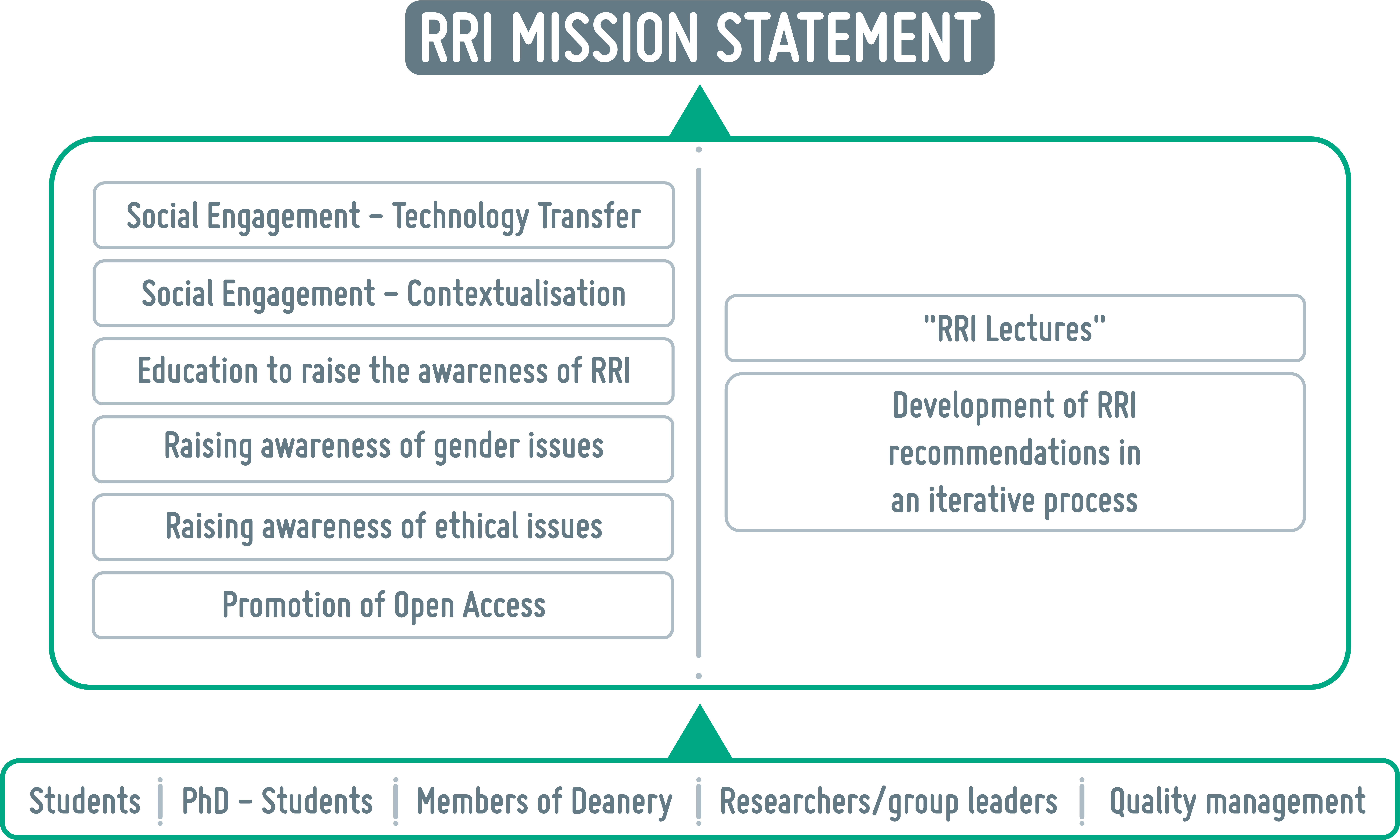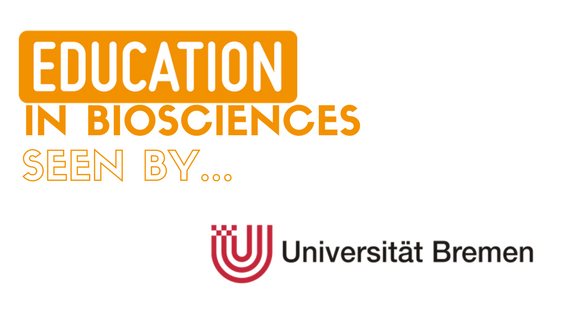
University of Bremen – Faculty of Biology & Chemistry
Dr. Doris Elster – Head of the Department of Biology Education at the Institute of Science Education.
1. How do you understand “Education” in biosciences research?
Science Education is one of the six policy keys within the normative framework of RRI. The core focus is the enhancement of the current education process to better equip citizens (students, teachers, interested laymen) with the necessary knowledge and skills so that they can participate in debates about Research and Innovation (R&I) and can make decisions as scientific literate persons. A further focus of Science Education is to develop and implement educational programs to raise interest in and awareness of responsible research to increase the number of researchers and promote scientific vocations.
2. What are the current standards and actions to achieve better Education in the University of Bremen?
The University of Bremen offers services for doctoral and postdoctoral researchers within the educational center BYRD (Early Career Researcher Development). This is a central hub for early career researchers to foster their independent research skills and to provide the means for individual development as well as career paths.
The qualification program for doctoral researchers covers workshops such as academic writing and publishing, presenting and networking, research methods, or career orientation and job application standards. The BYRD program for postdocs and advanced researchers comprises qualification workshops and support services in the following fields of competences: research, teaching and instruction, internationalization, networking, transfer and science communication, and gender and diversity. Postdocs have the opportunity to network on interdisciplinary issues as well as career development. Coaching and mentoring programs help to develop career plans based on the individual competences.
Although the university-wide BYRD educational program is of high standard, there is a need for specific educational programs for the promotion of RRI issues especially in the field of biosciences. Therefore, one of our goals in the STARBIOS2 project is to contribute specific RRI training modules to the already existing BYRD qualification program.
3. What are you aiming for with the implementation of the STARBIOS2 actions towards better Education standards for the Faculty Biology and Chemistry at the University of Bremen?
The Action Plan (AP) of the University Bremen focuses in the promotion of sensitiveness, awareness and structural change regarding the RRI issues within the Faculty Biology and Chemistry. Education is our main line to trigger practicing and training RRI issues.
One example of good practice towards better educational standards in respect to RRI is the Graduate School NanoCompetence which links researchers and students of natural sciences and social sciences with the goal to support research, application and communication in the field of nano-particles and their effect on humans and the environment.
A further important hub to foster societal engagement through education is the outreach lab Backstage Science. Here we offer an environment for inquiry-based teaching and learning (within the BaSci lab) and a discussion forum for researchers and the public (the so-called BaSci lectures).
We cooperate closely with the faculty-intern Quality Management and Control Group to integrate specific RRI issues in the broader institutional structure. Our goal is to negotiate and to implement a RRI mission statement at the Faculty Biology and Chemistry. In this context we focus on gender sensitiveness by offering mentoring and a female career friendly research environment. Open access to research findings by offering websites and events such as poster awards for different communities, and raising awareness for ethics by updating and reconstructing ethical research guidelines are our further goals.
4. What kind of actions are you going to establish to fulfill your objectives?
To put our AP into practice we developed seven Streams of Actions (SoAs):
A. Setting up criteria for successful societal engagement and technology transfer
B. Promoting societal engagement through socio-scientific contextualization
C. Education to raise the awareness of RRI Keys
D. Raising awareness of gender issues
E. Raising awareness of ethical issues
F. Promotion of open access
H. Making a RRI Mission Statement at faculty level possible
We start each SoA with a comprehensive state-of-the-art analysis. This comprises a complex literature recherché. The findings of the analysis form the basis for the development of theoretical framework to analyse research projects or to develop interview guidelines. The interviews are conducted with different focus group(s) (doctoral students, postdocs, students, researchers). Their findings are the basis for the development of questionnaires for the specific target groups. From the findings we deduce criteria for the successful promotion of the specific RRI issue.
At the next step we develop educational building blocks and activities for the keys Societal Engagement, Technology Transfer, Gender, Ethics, and Open Access. These building blocks and activities will be tested and evaluated within the different focus groups.
The key-specific building blocks (see figure 1) form the basis of the RRI educational training program. The RRI programme will be offered at Faculty level as well as university-wide at the BYRD centre to different target groups (students, doctoral researchers and postdocs). The results of the program evaluation will contribute to the RRI Mission Statement of the Faculty.
We will foster sensitiveness and awareness in respect to RRI through dialog with important stakeholder, offer academic lectures and round tables, highlight transparency and offer a user-friendly website, good practice examples, and recommendations at the faculty level and at the university level.
Figure 1. Building blocks that form the RRI educational training program.
5. Who is involved, from University of Bremen in the action plan in order to complete the final objectives?
The Institute of Science Education, Department Biology Didactics, in cooperation with researchers of the Centre for Environmental Research and Technology triggers the structural change process based on the complex Action Plan (AP). In addition, an interdisciplinary steering committee of natural scientists of ecology, neurobiochemistry, sustainable chemistry, and molecular biology, social scientists of philosophy, science educators and members of the faculty-intern quality control group supports the STARBIOS2 project.
The project follows a top down – bottom up principle. Therefore, the establishment of the focus group doctoral students (with eight members), the focus group students (with eight members), and the focus group advanced researchers (with four members) is important for the development, the evaluation and the implementation of the RRI academic training program.
The RRI mission statement of the Faculty Biology and Chemistry is our major goal (see figure 2). Therefore, members of the deanery, academic committee, and quality management are involved in the project from the very beginning.
Figure 2. Basis for the development of the RRI Mission Statement.








